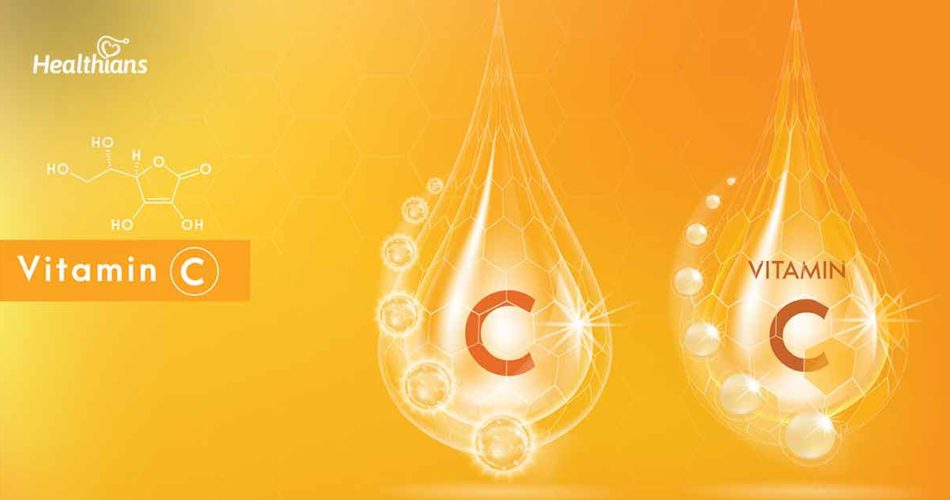Contributed by: Healthians Team
Introduction to vitamin C
Vitamin C is one of the most vital nutrients required for the growth, development, and repair of all body tissues.
Also known as ascorbic acid, vitamin C influences several functions of your body like the development of collagen (a protein that promotes joints and skin health), absorption of iron from the food you eat, quick healing of wounds and bruises, optimum functioning of the immune system, and protecting the health of the cartilage, bones, and teeth.
Your body does not perform any function to produce or store vitamin C on its own and the only way to increase it is by consuming foods or supplements that are rich in vitamin C. If you have a habit of consuming alcohol regularly, smoking cigarettes, or suffer from anorexia (eating disorder), there are high chances that you have a vitamin C deficiency.
However, you should not start consuming huge amounts of vitamin C foods and supplements because an overdose may escalate the quantity of oxalate in your kidneys that might develop kidney stones.
Vitamin C is vital for good health and disease prevention. To determine whether your body lacks vitamin C or not, you should look for the following possible indications:
Symptoms of vitamin C deficiency
- Lack of vitamin C can adversely affect the formation of collagen and cause rough, bumpy, and damaged skin. You may experience painful and swollen joints due to this.
- Vitamin C deficiency can have an impact on the growth of your body hair. You may experience that your body hair is growing in a bent or a coiled shape.
- Vitamin C deficiency can lead to the formation of small and bright red spots around the hair follicles.
- A lack of vitamin C may lead to iron deficiency. You may notice spoon-shaped fingernails with red lines or spots beneath them.
- You may experience easy bruising and slow healing of wounds due to a lack of vitamin C.
- Vitamin C deficiency may impact the health of your bones by making them weak. It may also give rise to bleeding gums and tooth loss, and may also lead to poor immunity.
- You may also experience extreme weakness and tiredness, chronic inflammation, stress, and increased fat reserve in your body causing weight gain.
Some conditions that may induce vitamin C deficiency include pregnancy, breastfeeding, fever, hyperthyroidism, and diarrhea.
A balanced level of vitamin C can help prevent severe health complications like cardiovascular disease, scurvy, and diabetes. However, if you experience any of the above-mentioned symptoms, we recommend that you undergo an early diagnosis to protect yourself from vitamin C deficiency complications.
Diagnosing vitamin C deficiency
Initially, your doctor will conduct a physical examination of your skin, gums, and teeth to look for the early symptoms and may recommend a complete blood count test (CBC blood test) to look for markers indicating a lack of vitamin C in your blood.
If the diagnosis confirms that your body lacks vitamin C, you should implement healthy lifestyle changes like regular exercise and consuming foods that are rich in vitamin C, along with doctor prescribed medication and vitamin C supplements.
Foods rich in vitamin C
Since your body does not make vitamin C on its own, consuming foods that are rich in this nutrient can help you manage the deficiency. Here is a list of easily available foods that are rich in vitamin C.
- Oranges
- Green chilies
- Guava
- Strawberries
- Papaya
- Lychee
- Lemon
- Brocolli
- Kiwi
- Mustard spinach
The takeaway
Vitamin C supports the overall growth and development of your bodily tissues. It is crucial for a healthy immune system, the well-being of your heart and blood vessels, and also influences the functioning of your connective tissue.
Book The Full Body Health Checkup With Vitamin Screening Today!




